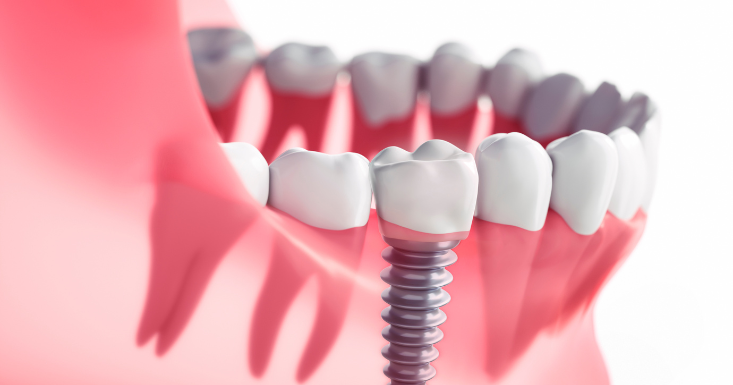
Dental implants offer a permanent solution to replace missing or damaged teeth. However, if you have gum disease, you may wonder if dental implants are still an option. Gum disease, especially in advanced stages, can impact your candidacy for implants. In this article, we’ll explore whether dental implants are possible with gum disease and what steps you need to take.
Understanding the Connection Between Gum Disease and Implants
Gum disease, or periodontal disease, is a bacterial infection affecting the gums. It causes inflammation, infection, and sometimes tooth loss. In advanced stages, the disease can damage the bone that supports your teeth, which is crucial for dental implants. Without healthy gums and bones, it becomes challenging to secure implants effectively.
Can You Get Implants with Gum Disease?
Yes, you can still get dental implants even with gum disease. However, it depends on the severity of the disease and damage to your gums and bones. If your gums are infected or receding, your dentist may recommend treating the gum disease first. After successful treatment and healing, they can proceed with the implant procedure.
How Your Dentist Assesses the Situation
Your dentist will carefully evaluate the health of your gums and jawbone before recommending implants. They will take X-rays and conduct a thorough examination to assess bone density. Your dentist may proceed with the placement if you have sufficient healthy bone to support an implant. However, if your bone is too weak or damaged, they may suggest bone grafting to strengthen the area.
Treating Gum Disease Before Implant Placement
In most cases, your dentist must treat your gum disease before implanting. This typically involves deep cleaning treatments like scaling and root planing. In more severe cases, you may need gum surgery to remove infection and regenerate lost tissue. Your dentist can place your implants once your gums are healthy and after they address the bone loss issues.
The Importance of Gum Health for Successful Implants
Healthy gums are essential for the success of dental implants in New Port Richey. If you do not address gum disease, the infection can spread, leading to implant failure. Additionally, gum disease can cause implant failure due to inflammation and bone loss around the implant site. Therefore, following a proper oral care routine after implant placement is crucial. This ensures your gums stay healthy and your implant remains secure.
What to Expect After Gum Disease Treatment
Once your gum disease is under control, your dentist will give you instructions for post-treatment care. You will need to maintain excellent oral hygiene to prevent any future infections. Your dentist may recommend more frequent check-ups to monitor your gums and ensure they stay healthy. After healing, they will schedule the implantation procedure.
Bone Grafting: A Possible Step for Advanced Gum Disease
If gum disease has caused significant bone loss, bone grafting may be necessary. Bone grafting involves adding bone material to the jaw to help support the dental implant. This procedure allows the bone to regenerate and become strong enough to support the implant. After bone grafting, you will need time for healing before your implants can be placed.
Risks of Getting Implants with Active Gum Disease
Placing implants while you still have active gum disease can lead to several complications. The risk of infection increases and the implants may not integrate well with the bone. Also, untreated gum disease can cause long-term problems, such as inflammation, bone loss, and implant failure. Therefore, it is crucial to address gum disease before proceeding with the implant procedure.
Maintaining Gum Health After Implant Surgery
Once your dental implants are successfully placed, maintaining healthy gums is critical. You must continue practicing good oral hygiene, including regular brushing and flossing. Your dentist may recommend using a special mouthwash to keep your gums clean and healthy. Regular dental visits are also essential to monitor the health of your gums and implants.
Successful Implants With Existing Gum Disease?
In conclusion, getting dental implants with gum disease is possible but requires proper treatment and healing. The key is to ensure that your gum disease is under control and that your gums and bones are healthy enough to support the implants. By following your dentist’s advice, addressing gum disease, and maintaining good oral care, you can enjoy the benefits of dental implants and a healthy smile. Always consult your dentist in New Port Richey FL to discuss your specific condition and determine the best treatment plan.

